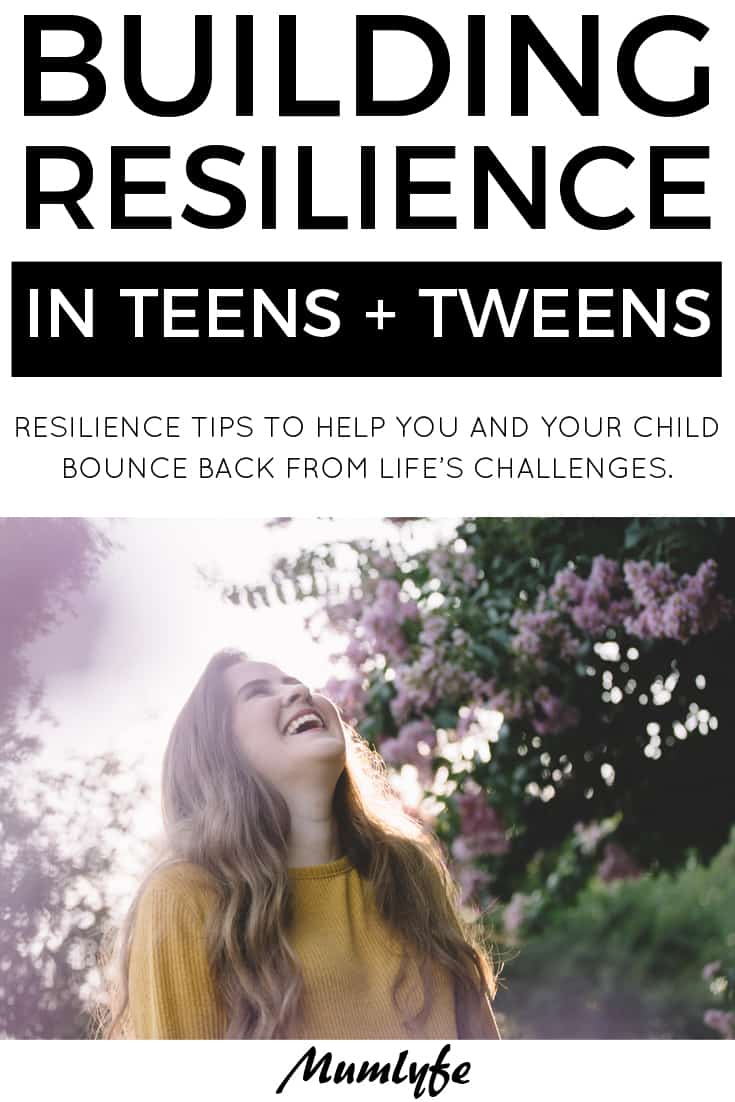These resilience tips will help you and your child through tough times. Resilience – the ability to bounce back when things get rough – is not something we are born with, although some people are tougher by nature than others. Resilience is something that we can help our kids build and develop. It’s something we should work on every day, even when things are going great, so that we have it in our armoury when life hits a snag.
Challenges, tragedy and difficulties face every one of us at different times, and our kids are no different. No one is spared and we generally don’t get a say in what happens or when. We do get to choose how we respond though.
Here are five things you can do to help your kids build resilience (and maybe stock your own armoury too).
Check this one out too: Let’s stop trying to fix things before they even happen
5 resilience tips to help you through tough times
1. Relationships are your child’s anchor.
Sheryl Sandberg, in her eloquent Facebook post following her husband’s death opened by saying, ‘I want to thank all of our friends and family for the outpouring of love over the past few days.’ This reflects the response of so many people following the loss of a loved one or a major tragedy. Friends, family, colleagues, community, the many relationships in our lives provide us with the love, trust, support and encouragement we need to get through the tough times.
Many studies have shown that relationships are our number one source of resilience when things go awry.
The people in our kids’ lives can also act as great role models for how to cope with life’s adversities. Teach them to nurture these relationships, share their worries and experiences, look at how others have coped, accept offers of help and offer their support when friends and family need it. Many studies have shown that relationships are our number one source of resilience when things go awry.
2. There is a solution to every problem.
We can’t bring back a loved one, cure an incurable illness, or even insist a teacher change a disappointing grade, but we can find small ways to solve the immediate problems confronting us when situations arise. The trick here is not to dwell on the difficulties but to look for the little things that will make the next moment better.
Remind your child to ask if there something they can do to help someone else deal a situation?
Is there something that they can do to feel better themselves?
The trick is to take small steps to solve the immediate problem. Keep track of how you’re feeling as you conquer the little tasks, and note the subtle improvements in your state of mind as the days pass.
 3. Keep moving forward.
3. Keep moving forward.
This is important anytime in life: the ability to set goals and keep taking steps to move towards them. It’s never more important than when you’re facing a challenge. Little goals to help get through the next hour or day, or big goals to improve life in a significant way in the weeks, months and years to come. Help your child set a project goal and work towards achieving it with determination and dedication. Taking decisive action on a regular basis and thinking about the future rather than the past is a great way to build their resilience.
4. Take heart from the past.
You may never have faced a challenge as tough as the one you or your child are facing now, but you have faced, and survived, challenges in the past. Draw on those successes, or share your own previous successes with your child. Think back on difficult times. How did you get through it? What worked? Who helped? How did you cope? Can you try that now? Give it a go.
Generally don’t get a say in what happens or when. We do get to choose how we respond though.
5. Reflect on the bigger picture.
This can be hard, very hard, when life has dealt you a really crappy blow, but really resilient people find a way to look at the bigger picture and put the difficulty they are facing into some kind of perspective. Often this involves being grateful for all of the good things that you have in your life and reflecting, briefly, on how things could be worse – and are often worse – for others. Don’t dwell on this, but focus on the good things that exist in your life despite the difficulties.
6. Look after yourself.
If we want to be resilient and weather life’s storms we need to take care of ourselves. You can build your physical and emotional resilience by making sure that you eat well, sleep well and get adequate exercise. That doesn’t mean gym sessions or long runs, unless that’s your thing, but it does mean getting physically out and about, preferably in fresh air.
When we’re down we can slip into bad habits. We eat badly, drink too much, don’t get good sleep and may avoid leaving the house or interacting with other people. Our kids are no different (except for the drink – we hope!) Set yourself some goals around improving your physical wellbeing to cope with your situation and you will find that your emotional state improves too.
Finally, if you find that you are really struggling emotionally and things are not getting better with time, please do see your GP. If you feel like you are in crisis right now, please contact Lifeline on 13 11 14 – there is always someone available there to talk to you when you need them.
Do you have any resilience tips that have helped you get through in the past?
Image by Savs



5 ways to build your parental resilience | Mumlyfe
Tuesday 16th of April 2019
[…] possible to increase the resilience of our children, so that the kids can cope with challenges, bounce back after adversity and appreciate the good times. It’s important stuff, but it’s not a one-off lesson […]
How to have difficult conversations with the kids | Mumlyfe
Friday 15th of March 2019
[…] You got this: 5 resilience tips to help you through tough times […]
DAD Film review | Mumlyfe
Thursday 1st of November 2018
[…] Maxabella 11 October 2018 […]